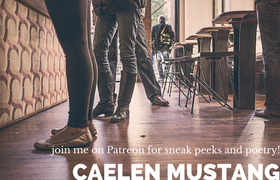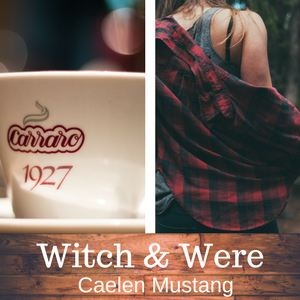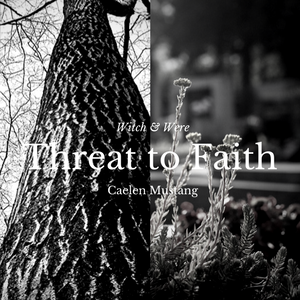In the late 1600s, four siblings - two sisters, two brothers - came to a small village in what would in time become the state of Vermont. The oldest of the four, Zoe, established the first of the North American covens, and the town was given by name to her husband's god - Odin. Through their magic and faith in their gods, Odin's Town soon thrived both as part of and apart from the soon growing United States. But the covens largely kept to themselves, using their spells to keep their home hidden from both sides during the Revolutionary War.
The second sister, Eugenia, married an alchemist of some renown shortly after the relocation to Odin's Town, and the only thing bigger than Joel's smile was his heart. His propensity for mischief and talent for conning foolish marks were tempered by his generosity. They had two children during the Revolutionary War - the younger of the two would grow up and inherit her mother's tea shop. The older child accepted the love, and bite, of a vampire... but that was another story for another day.
The long year of the Salem Witch Trials proved that mankind at large was not ready to accept witches or other folk into the common grounds of the world. Eugenia did what she could to save the true witches in Salem to preserve peace and ensure the Massachusetts covens' survival, but by May 1693, more than half of just the Salem coven had perished, and other covens and witches soon fled the state, absorbed by other covens or disappearing in the untouched west of North America. Eugenia, enraged and infuriated, took revenge for the dead, asking her own god Hecate to give her the power to damn the Reverend Parris and punish the town. In exchange, she gave up her mortal ability to dream and so too would her descendants - the realm of dreams was too vulnerable to such severe manipulation.
The youngest of the four, the twins Damon and Haemon, disappeared during the Civil War. This was a war that, for the witches, danced across lines most uncomfortable: Many of the southern covens owned slaves, some covens were secret and entirely composed of slaves who grew terrified of their counterparts behind Confederate lines. As the dust settled, the covens dissolved, soon forming again and determined to either atone for or forget the past. The twins were last seen entering a deep, dark bayou during the full moon one hot and humid night in July 1861. Stories said they were eaten by werewolves in that murky bog, or that they gave up their physical forms to better fight the war. Myths persist to this day of strange creatures in those swampy places, whispers of grand creeping beasts with eyes green as emeralds and teeth like knives. Even the small, local werewolf packs fear to tread there.
As the Great Depression began, the High Council began to deteriorate - many councilors were too busy taking care of their own to help one another. It was during this time that Zoe began neglecting her own duties as Wodenton's magistrate. Her husband and son had died during the Prohibition and she'd been grieving her loss deeply. She would disappear for days at a time, sometimes even weeks, and she soon began lashing out at the others on the High Council when they pressed her on her whereabouts. Eugenia, despite her own family troubles when her oldest took a vampire's bite, began taking on her older sister's responsibilities, becoming the Magistrate and her replacement on the council in all but name... at least, when she wasn't around. Witches of the coven would go to Eugenia for help more and more as time went on, something that did not go missed by Zoe - whose jealousy only compounded the impending collapse of their relationship.
During one of Zoe's extended absences, Eugenia petitioned the Wodenton coven and the High Council for Zoe's removal, as her increasingly erratic behavior and unstable temperament were portraying the covens in a poor light. How long would it be before one of Zoe's outbursts exposed them to the mundane world?
Perhaps by good fortune, perhaps by foul, Zoe was apprehended in a rural Idaho cemetery with tools and substances in her possession that had been banned for their intended use - usually necromancy. Whatever her reason, her intent to raise the resting dead was clear. This alone pushed the community to oust the witch, but when an attempt was made to bring her in for trial, she escaped and vanished.
The transition of Eugenia taking her place was far from smooth. Entire covens protested, fearful that she would be just as bad as Zoe. To ease the worries of the covens, she gave up her small business - her tea shop - and left it to her younger daughter, Irene, and turned in her prized cedar and gold staff as an oath and declaration to separate herself from her sister.
It was never truly clear what Zoe hoped to accomplish with raising the dead - her husband and son had been cremated, no bodies left to raise. In hushed whispers, witches spoke of a vampire that had twisted Zoe's mind, tricking her, making her believe the High Council was working to take her down. But her journals and spell books were gone, burnt or shredded beyond repair, and she soon faded from memory.












Comments (0)
See all